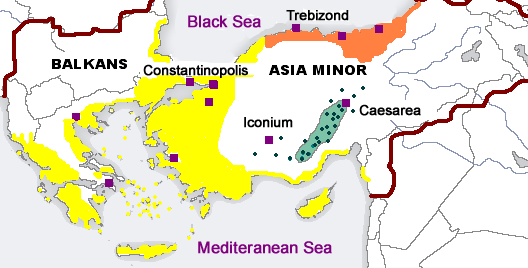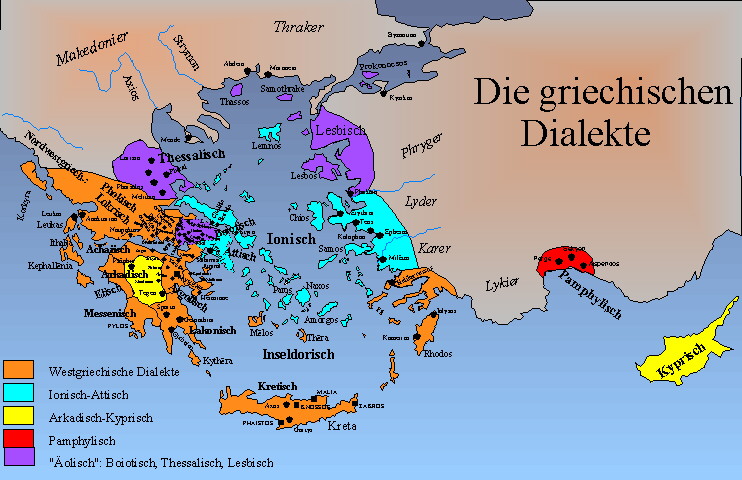
Description
Distribution of Greek dialects during the late Byzantine Emptire, 12-15th centuries. Yellow, late Byzantine Koine Greek, which formed the foundation of Modern Greek; orange, Pontic Greek; green Cappadocian Greek.
Distribution of Greek dialects during the late Byzantine Emptire, 12-15th centuries. Yellow, late Byzantine Koine Greek, which formed the foundation of Modern Greek; orange, Pontic Greek; green Cappadocian Greek.
I found this map over at Wikipedia, I find it quite interesting.
Lets discuss the various aspects of it.
I have not obtained the original source of the map.
It seems as if ~90% of Macedonian territory did not have any Greek speakers. Wonder what language they used? Interesting is also that the largest territory inhabited by Greek speakers is not in the Balkans but rather in present day Turkey.











Comment